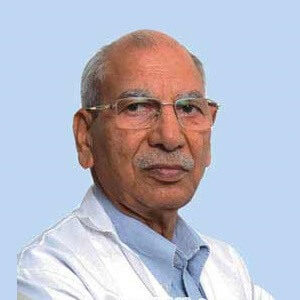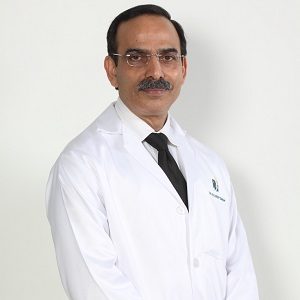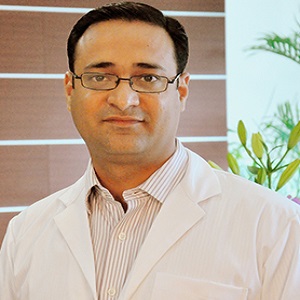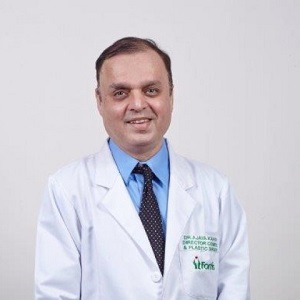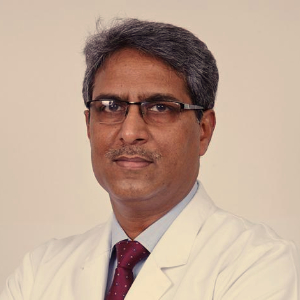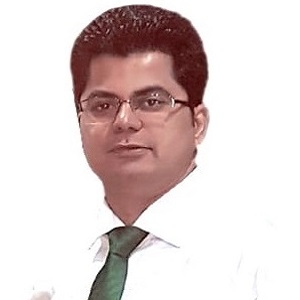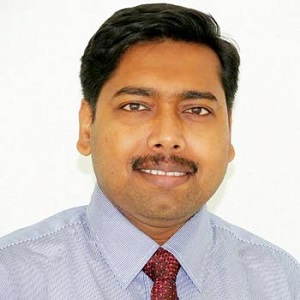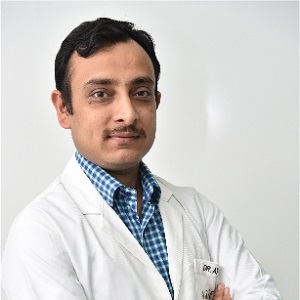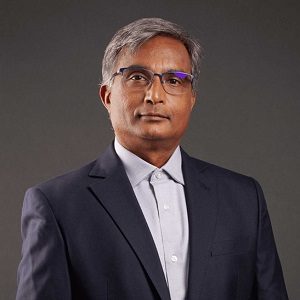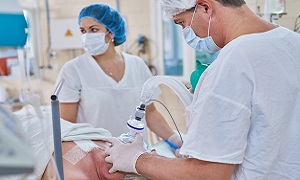Best Doctors in India for Liposuction Surgery
- Cosmetic & Plastic Surgeon, New Delhi, India
- Over 52 years experience
Profile Highlights:
- Dr. Indrapati Singh is one of the best cosmetic surgeons in India with extensive experience. He works as a senior cosmetic surgeon at the Indraprastha Apollo Hospital in New Delhi.
- Dr. Singh specializes in Plastic, Cosmetic, and Reconstructive Surgery and has over 52 years of combined expertise.
- He has successfully performed plastic and cosmetic surgery treatments on all parts of the body. His surgeries on the head, face, neck, and body improve one’s attractiveness. Aesthetic augmentation/reduction, liposuction, vaginal tightness, body contouring, and even hair transplantation are among the therapies available with him.
- Dermatologist & Cosmetologist, New Delhi, India
- Over 16 years’ experience
Profile Highlights:
- Dr. Lipy Gupta is one of the leading dermatologists in India
- She has expertise in dermatology, cosmetology, and laser therapy.
- Her desire is to offer the latest and most effective skincare and beauty procedures for which she constantly updates her techniques and extensive knowledge of the subject by attending training workshops and seminars.
- Cosmetic & Plastic Surgeon, New Delhi, India
- Over 31 years experience
Profile Highlights:
- Dr. Kuldeep Singh is a prominent plastic surgeon in India with over 31 years of experience. He works as a senior cosmetic surgeon at the Indraprastha Apollo Hospital in New Delhi.
- Dr. Singh specializes in body contouring surgery, laser treatment to improve aesthetics, and microsurgery. He has performed several plastic surgery treatments with success. He takes care to leave minimum scar marks post-surgery.
- Dr. Singh is involved in many pieces of research and has several publications to his credit.
- Plastic & Cosmetic Surgeon, Gurugram, India
- Over 15 years’ experience
Profile Highlights:
- Dr. Manik Sharma is known as one of the best plastic and cosmetic surgeons in Delhi/ NCR.
- He also has a special interest in the field of craniofacial surgery and throughout his career, he has successfully treated hundreds of cases of craniofacial malformations and trauma.
- Dr. Manik Sharma’s paper on Tendon Repairs won the best paper award at the NZAPSICON, in 2010.
- Plastic & Cosmetic Surgeon, Gurugram, India
- Over 35 years’ experience
Profile Highlights:
- Dr. Ajaya Kashyap is one of the most reputed plastic surgeons in India with over 35 years of experience. He completed his residency in Surgery at Robert Packer Hospital (Guthrie Clinic), Sayre, Pennsylvania, USA. He completed his Fellowship in Plastic and Reconstructive Surgery at University of Massachusetts Medical Center, Massachusetts, USA in 1997.
- Dr. Kashyap practices cutting-edge Plastic Surgery including the latest innovations in Minimal Access and Endoscopic Cosmetic Surgery. He also performs state-of-the-art laser procedures, power-assisted liposuction, short scar anatopexices, and the latest techniques in facial cosmetic surgery, rhinoplasty, and body contouring. He also is a leader in reconstructive and hand surgery.
- Plastic & Cosmetic Surgeon, Gurugram, India
- Over 30 years’ experience
Profile Highlights:
- Dr. Amitabh Singh is a reputed Plastic Surgeon in India who received his training in microvascular surgery at Ganga Hospital in Coimbatore, Taiwan’s Chang Gung Memorial Hospital, and Bangkok’s Siriraj Hospital.
- He completed a fellowship in Aesthetic Plastic Surgery following major weight loss (post-bariatric) at Iowa City, Iowa, and trained with plastic surgery legends at Emory University in Atlanta, Georgia.
- Plastic & Cosmetic Surgeon, New Delhi, India
- Over 18 years’ experience
Profile Highlights:
- Dr. Pankaj Mehta is a renowned Certified Plastic and Cosmetic Surgeon in Delhi/NCR.
- He has received his medical degree ( MBBS ) from the University of Rajasthan, Jaipur, India. Then he acquired his Master’s in General Surgery from Rajasthan University, Jaipur. After that, he further received his Plastic and Reconstructive Surgery training from Government Medical College, Nagpur.
- Dr. Pankaj Mehta has a special interest in Body Contouring Surgery (Vaser Liposuction and Tummy Tuck), Gynaecomastia, Hair Transplantation & other surgical procedures. Like Rhinoplasty (Nose Job), Blepharoplasty, Facelift, Oncoreconstruction, Burns.
- Throughout his career, Dr. Mehta has worked extensively to provide the latest and cutting-edge treatments to his patients.
- He also travels extensively across the world attending various international courses, workshops as well as conferences on aesthetic and reconstructive surgery.
- Dr. Pankaj Mehta is associated with several organizations such as the Indian Association of Aesthetic Plastics Surgery.
- Plastic & Cosmetic Surgeon, Gurugram, India
- Over 18 years’ experience
Profile Highlights:
- Known as one of the best Plastic surgeons in Delhi/NCR, Dr. Vilamendu Brijesh completed his graduate diploma from the Royal College of England.
- He performs varieties of reconstructive microsurgeries as well as aesthetic surgeries, but his core areas of interest are Rhinoplasty, Facial Rejuvenation, Hair Transplant as well as surgeries related to Brachial Plexus Injuries.
- Plastic & Cosmetic Surgeon, Gurugram, India
- Over 15 years’ experience
Profile Highlights:
- Dr. Avinash Agarwal is a well-known cosmetic surgeon in Delhi/ NCR. He has been trained and worked under an esteemed faculty of the prestigious Dayanand Medical College and Hospital, Ludhiana.
- He has experience in operating on all types of maxillofacial injuries, traumatic upper and lowers limb injuries including tendon repair and microvascular repair of nerve and vessels, reconstructive surgeries including free flaps, various cosmetic surgeries including abdominoplasty, gynaecomastia correction, reduction of mammoplasty, breast augmentation, liposuction, hair restoration, etc.
- Plastic Surgeon and Cosmetic Surgeon, Chennai, India
- Over 22 years’ experience
Profile Highlights:
- Dr. Antony Aravind is a plastic surgeon in Chennai with an expertise of 22 years in managing cosmetic procedures.
- With his rich experience, Dr. Antony deals with the Reconstructive procedures related to deformities and blemishes. Some of the best services offered include lip enhancement, nose correction, breast augmentation, dermabrasion, etc.
- The British Association of Plastic Surgery has awarded Dr. Aravind Certification in Plastic Surgery.
Best Hospitals in India for Liposuction Surgery
Fortis Escorts Hospital, New Delhi
- City: New Delhi, India
Hospital Highlights:
- Over the last 33 years, the Fortis Escorts Heart Institute has set new standards in cardiac treatment with groundbreaking research. It is now known around the world as a centre of expertise for Cardiac Bypass Surgery, Interventional Cardiology, Non-invasive Cardiology, Paediatric Cardiology, and Paediatric Cardiac Surgery.
- The hospital has cutting-edge laboratories that perform a wide range of diagnostic tests in Nuclear Medicine, Radiology, Biochemistry, Haematology, Transfusion Medicine, and Microbiology.
- Fortis Escorts Heart Institute boasts a diverse group of bright and experienced doctors who are backed up by a team of highly qualified, experienced, and devoted support professionals as well as cutting-edge equipment such as the recently installed Dual CT Scan.
- Approximately 200 cardiac doctors and 1600 personnel currently collaborate to manage over 14,500 admissions and 7,200 emergency situations each year. The hospital now has a 310-bed infrastructure, as well as five cath labs and a slew of other world-class amenities.
Rela Hospital, Chennai
- City: Chennai, India
Hospital Highlights:
- RIMC is a multi-specialty hospital in a sprawling area of 36 acres located in Chromepet, Chennai, Tamil Nadu, India.
- The facility has 450 beds including 130 critical care beds, 9 operating rooms, modern reference laboratories and radiology services, and is conveniently located near road, rail and air transportation.
- RIMC is led and managed by world-renowned physicians committed to healthcare.
- RIMC offers the broadest range of clinical care, education, and research. The hospital offers state-of-the-art technology and modern treatment facilities designed to provide health care at an affordable cost.
- Rela Institute is driven by patient needs, comfort and confidence.
CARE Hospitals, Hyderabad
- City: Hyderabad, India
Hospital Highlights:
- CARE Hospitals were established in the year 2000, by CARE Group.
- The multispecialty hospital has 435 beds, including 120 critical care beds, with an annual inflow of 180000 outpatients and 16,000 in-patients.
- The hospital provides specialty medical services in Cardiology, Cardiothoracic Surgery, Pediatric Cardiology, Pediatric Cardiothoracic Surgery, Neurology, Neurosurgery, Nephrology, and Urology.
- The hospital has the first dual source, 128 slice CT scanner (for high precision cardiac imaging) – the first of its kind in south India.
- The hospital offers a wide range of accommodation facilities for the convenience of its varied patient base, ranging from general wards to super deluxe rooms.
Fortis Hiranandani Hospital, Mumbai
- City: Mumbai, India
Hospital Highlights:
- Fortis Hiranandani hospital was established in 2007.
- The hospital is an advanced tertiary care, multi-specialty hospital equipped with 149 beds.
- The hospital is equipped with a super ICU to provide emergency medical care to critically ill patients.
- The hospital is NABH accredited.
- The critical care facility in the hospital is augmented with the state-of-the-art facilities that facilitate speedier diagnosis and efficient monitoring.
- The hospital provides specialty medical services in cardiology, orthopedic science, pediatric science, neurology, diabetic care, urology, nephrology, ENT, obstetrics, gynecology, cosmetic surgery, bariatric surgery, neuro and spine care.
Fortis Hospital, Anandpur, Kolkata
- City: Kolkata, India
Hospital Highlights:
- Fortis Hospital, Anandapur, Kolkata is a world-class super-speciality equipped with the latest technologies in the medical world.
- The hospital is NABH accredited.
- This state-of-the-art facility specializes in cardiology and cardiac surgery, urology, nephrology, neurosciences, orthopaedics, digestive care, emergency care and critical care.
- The hospital, governed by integrated Building Management System (IBMS), has a pneumatic chute system, for quick vertical and horizontal transportation between floors, facilitating speedy transfer of patient specimens, documents, reports, and medicines to the concerned departments.
- The hospital also has a nephrology department with over 28 advanced dialysis units.
Fortis Hospital Banerghatta, Bengaluru
- City: Bengaluru, India
Hospital Highlights:
- Fortis Hospital Bannerghatta, Bengaluru was established in 2006.
- The hospital is a 276 bedded multi-specialty tertiary care facility.
- The hospital specializes in cutting-edge medical technology and dedicated patient care services.
- The hospital is equipped with state-of-the-art technologies like trans-radial angioplasty, trans-abdominal cardiac surgery, and computerized TKR navigation surgery.
- The hospital provides specialty medical services in cardiology, cardiac surgery, orthopedics, neurology, neuro-surgery, GI, and Minimal Access Surgery (MAS).
Gleneagles Global Hospital, Parel, Mumbai
- City: Mumbai, India
Hospital Highlights:
- Gleneagles Global Hospital The 450-bed facility comprises of 17-stories, housing state-of-the-art infrastructure, and advanced medical care facilities.
- The hospital offers end-to-end clinical, surgical, and diagnostic services. It is equipped with a team of eminent medical professionals aided by qualified nurses and medical staff
- The Hospital offers advanced Endoscopic procedures, Hepatobiliary and Liver Surgeries, Surgical and Medical Gastroenterology, Bariatric Surgery, and Robotic surgery.
- The hospital is a center of excellence for Orthopedics, Joint Replacement, Knee Replacement, and Hip Replacement surgery.
Manipal Hospital, Dwarka, Delhi
- City: New Delhi, India
Hospital Highlights:
- Manipal Hospitals, Dwarka, is a super-specialty hospital in Dwarka, New Delhi, which is a part of Manipal Hospitals Group.
- The hospital aims to provide the best treatment on par with international standards at a fraction of the cost.
- Equipped with 380 beds, the hospital is also one of the new age hospitals which are equipped fully with state-of-the-art infrastructure, cutting-edge technology as well as the latest and advanced clinical practices. The hospital also has 13 modular Operation theatres with 118 beds which are solely meant for critical care.
- The hospital comprises internationally acclaimed doctors and highly professional and experienced hospital and medical staff who are able to provide preventive, therapeutic, and diagnostic services all under one roof.
Paras Hospital, Gurugram
- City: Gurugram, India
Hospital Highlights:
- Paras hospital was established in 2006 and is the 250 bedded flagship hospital of Paras Healthcare.
- The is supported by a team of doctors of international and national repute.
- The hospital is NABH accredited and also the first hospital in the region to have a NABL accredited laboratory.
- The hospital provides specialty medical services in around 55 departments including Neurosciences, Joint Replacement, Mother & Child Care, Minimal Invasive Surgery, Gynecology and Obstetrics, Ophthalmology, Dermatology, Endocrinology, Rheumatology, Cosmetic and Plastic surgery.
- The hospital is equipped with state-of-the-art technologies.
W Pratiksha Hospital, Gurgaon
- City: Gurugram, India
Hospital Highlights:
- W Pratiksha Hospital, Gurugram, is one of the best hospitals in the NCR region. It is also a top hospital in India for IVF. Since its inception, the hospital has performed over 5500 successful IVFs. The hospital also specializes in gynecology.
- With over 20 years of experience in providing quality healthcare, the hospital is known as one of the most trusted and valued health providers in India.
- Equipped with world-class medical facilities and advanced technology, the hospital’s doctors and clinicians also have a track record of delivering excellent results. The hospital is also known for focusing on preventive well-being as much as on curative treatment.
- The hospital has earned the trust of its patients, by providing the best available treatments at affordable costs.
Liposuction
Liposuction, which is also termed as lipectomy, lipoplasty or liposculpture suction, is a type of cosmetic procedure, which can break up and suck the fat out of the body. It can be used to remove fat from body parts such as the abdomen, neck, buttocks, chin, back, etc. The fat is removed using a hollow instrument known as a cannula, inserted under the skin, after which a powerful, high-pressure vacuum is applied to it. The procedure is carried out under general anesthesia.
Though liposuction can permanently remove fat cells in one’s body, which will alter the body shape, one needs to remember that if the patient refuses to lead a healthy lifestyle after the operation, there is a huge risk that the remaining fat cells will grow even bigger. Though there are some risks in this operation, it is linked to the amount of fat that was removed during the procedure. After the procedure, the skin molds itself to the new contours of the areas which were treated. If your skin tone and elasticity are good, the skin will likely appear smooth. However, if you have thin skin with poor elasticity, the skin in the treated areas might appear loose.
To be able to go through liposuction, it is important that you are in good health without conditions that might cause complications to the procedure. If you have conditions such as diabetes, weak immunity, restricted blood flow or coronary artery disease, complications might likely occur.
Why it is done
People who go through this procedure have more body weight than normal. Therefore, they use it to remove undesirable fat deposits in some specific body parts. However, liposuction should not be considered a treatment for obesity or an overall weight-loss method.
The main purpose of liposuction is to improve the appearance rather than to provide benefits to physical health. The same or even better results can be achieved through a healthy lifestyle, a healthy balanced diet, exercising regularly and proper sleep. Liposuction is advisable only if lifestyle changes have been unable to achieve the results which one was expected. Before one goes for the operation, proper consultation with the doctor is highly recommended.
Preparation
Before the procedure, it is important that you discuss with your surgeon regarding your expectations from the procedure. Your surgeon will review your medical history and ask you regarding any medical conditions which you might be having and any medications, herbs or supplements that you might use. Your surgeon might also ask that you stop taking certain medications such as NSAIDs, at least around three weeks before the procedure is performed.
If only a small amount of fat needs to be removed, your procedure can be done in an office setting. But if a large amount needs to be removed, the procedure has to be done in a hospital, and it will require you to stay overnight as well. In either case, you should consider arranging someone who can drive you home and can stay with you for at least the first night after the procedure.
Types of Liposuction
Tumescent Liposuction is known to be the most common type of liposuction. The surgeon first injects a sterile solution, which is a mixture of saltwater to aid in removing the fat, an anesthetic to relieve the patient’s pain and a drug that will make the blood vessels constrict into the areas that are being treated. Due to the mixture, the affected areas might swell and stiffen.
After this, the surgeon makes small cuts into the patient’s skin after which he inserts a cannula, a thin tube into the skin. This is connected to a vacuum that will suction the fat and fluids from the body. Your body fluid can also be replenished through an intravenous line.
Laser-assisted liposuction is another technique that uses high-intensity laser light which breaks down the fat to remove them. During this technique, the surgeon inserts a laser fiber through an incision in the skin and emulsifies the fat deposits. After this, a cannula is used to remove the fat.
Power-assisted liposuction is another type of liposuction in where the surgeon uses a cannula which moves in a rapid back-and-forth motion. Due to this vibration, the surgeon can pull out tough fat far more easily as well as faster. This method also involves less pain and swelling and allows your surgeon to remove the fat more precisely. This technique is usually used when you have large volumes of fat that require removal.
Ultrasound-assisted liposuction is a type of liposuction is used in conjunction with the traditional liposuction method. During this method, the surgeon inserts a metal rod, which emits ultrasonic energy under the skin. This can rupture the fat-cell walls, resulting in the breaking down of the fat, making them easy to remove.
During the procedure
Some liposuction procedures might require only local or regional anesthesia, as anesthesia is limited to specific areas of the body. However, other procedures can require general anesthesia, which can induce a temporary state of unconsciousness. You might receive a sedative, through a IV injection, so that you can remain calm as well as relaxed.
Your heart rate will be closely monitored by the surgical team, along with your blood pressure and blood oxygen level throughout the procedure. If you were given local anesthesia, and you feel pain during your procedure, inform your surgeon, as your medication or motions may require adjustment. Depending on the fat that needs removal, the procedure can last up to several hours.
If you were administered general anesthesia, you will wake up in the recovery room. If you are in a hospital, you might need to stay overnight to make sure that you’re not dehydrated or in shock due to the fluid loss.
Results
After the procedure, the swelling should subside within a few weeks. The treated area will look less bulky over time. Within several months, you can expect the treated area to have a much leaner appearance.
Though it is natural for the skin to lose some firmness with aging, liposuction generally gives long-lasting results if you are able to maintain your weight.
Risks
There are also a few risks of this procedure, which might result in some complications or side effects. They include:
- Severe bruising which can last up to several weeks.
- Numbness in the affected area for a while, but this is temporary
- Inflammation and swelling which can take up to 6 months to settle
- Thrombophlebitis, a blood clot which forms in a vein can also cause inflammation
- If there is poor skin elasticity or if the fat removal has been uneven, it is possible that the skin can appear withered, wavy, or bumpy.
- Anesthesia involves a small risk of death as well.
- Although it is rare, a skin infection can sometimes occur after the liposuction procedure. This needs to be treated surgically though, with the risk of scarring.
- Although very rare, sometimes liposuction can cause puncture of internal organs.
- Sometimes as the fluids are injected or suctioned, there is a change in the body’s fluid levels, which can cause kidney or heart problems.
- Sometimes, when fluid is injected into the body, it can accumulate in the lungs, which is called pulmonary edema.
- Sometimes, fat can get into the blood vessels, and travel into the lungs, which can block the circulation. Know as pulmonary embolism, this can be quite dangerous life-threatening.
- The cannula movement can sometimes lead to friction burns to the skin or the nerves.

